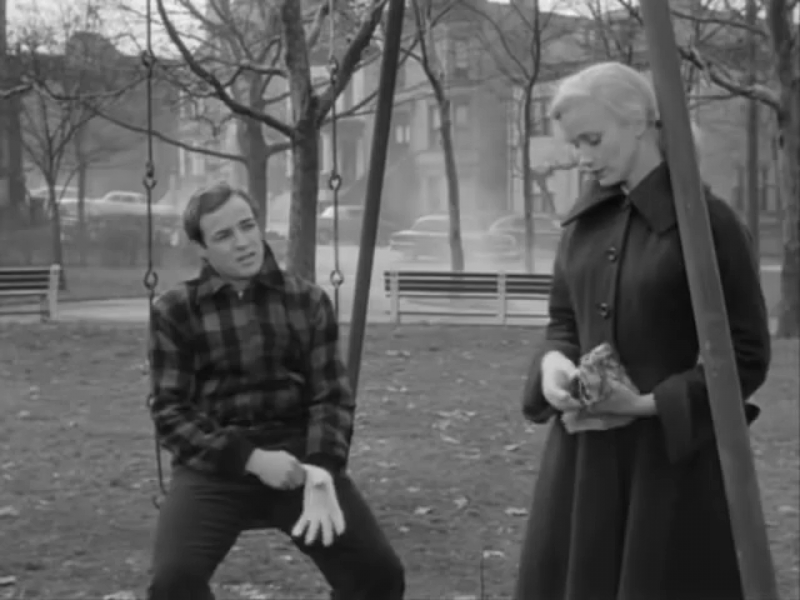On Method Writing
Furthermore, in Lahiri’s setup to the story, we learn that “When he returned to Boston, it was over. The baby was born dead.” But what really happened in the backstory has been repressed until now, and like the plays of Arthur Miller, there’s a way in which the “faults” of the past are made present. In her final act, Lahiri has Shukumar fill out the “baby was born dead” scenario, trumping Shoba’s reveal, confessing that while Shoba slept in her hospital bed, he held their dead son:
"His skin was more red than brown. He had black hair on his head. He weighed almost five pounds. His fingers were curled shut, just like yours in the night."
If an actor were to play this part, his objectives might be to bite, diminish, and crush her. And Shukumar succeeds, shifting the tone, toppling her with a greater cruelty, telling a story he promised himself to never tell her, moving their confessions from the trivial to the sublimely profane.
The beauty and power in this final scene is that Lahiri doesn’t run from it. Steve Almond has spoken to how he often has to instruct his young student writers to “stay in the rough,” keep writing through the embarrassing moment, don’t exit from the page, stay in the scene. Many writers might have Shoba exit the “stage” after hearing about her son, but instead like Gena Rowlands flipping the moment with her gentle pleading, “Don’t spoil it, Freddie, please,” Shoba stays in the room and a surprising irony occurs, another tonal shift, an additional beat, as out of the devastation comes a strange healing transcendence and two adrift characters reaching a shared understanding: “She came back to the table and sat down, and after a moment Shukumar joined her. They wept together, for the things they now knew.”
Many stories fail because they lack such genuine honesty or surprise that scene work in Lahiri’s “A Temporary Matter” or Elia Kazan’s On the Waterfront so often showcases. Instead of characters playing tactics and a writer discovering all of the shifting tonalities, beats in the dialogue, limpid stories are full of flat scenes where nothing new or surprising is emerging.
Great actors never flatline; they find varied levels, moments of syncopation playing up against a standard 4/4 beat. Nobody followed an impulse better than Marlon Brando. He was brilliant at choosing the right expression, gesture, and response for the right moment. In a tender scene from On the Waterfront, Terry Malloy (Brando) walks with Edie Doyle (Eva Marie Saint) out front of a church on the mean streets of Hoboken, New Jersey. He’s somewhat shy and retreating, unsure of what to say. And then, in the midst of the conversation, Edie accidently drops her glove and Terry picks it up, sits on a swing, removes bits of lint from the glove’s fingers, and places it on his hand.
A “rehearsed accident” (Saint dropping the glove) turns into a magical impulse (a man wearing a woman’s glove). Brando slides his hand inside her glove, leaving a personal trace within an object of clothing that isn’t his. It’s as if he’s holding hands without holding hands. This is an inspired choice that shows Terry’s tenderness, vulnerability, and repressed desire to hold her. And from there the dialogue becomes gentler between them, more poignant.
Let us slow down and look at the scene more closely now, at several beats, and how the actors’ choices and Budd Schulberg’s dialogue serve up dynamic complexities, shifts in objectives and emotional levels. All of these choices point a way for writers to write better scenes. Recall Baxter’s charge to writers in his chapter “Counterpointed Characterization,” challenging us to step outside the protagonist/antagonist pattern of conflict that is the realm of melodrama. Most literary stories are about something else, and we have to be listening, decoding impulses, tracking interesting characters bringing out arresting responses from their counterpoints.

The given circumstances: Terry has been asked by the mob to keep an eye on Father Barry’s protest movement with the waterfront workers. Terry finds himself attracted to Edie but feels tremendous guilt in being complicit in her brother’s death. His objective is to find out just what she and the Father are organizing and to keep her distracted, directed away from the truth. Edie, a sheltered woman, desires to avenge her brother’s death and to take her fight, with the help of the priest, to the streets. She wants answers from Terry and often has to press the issue, pushing away his various moments of subtle deflection (“Well, they play pretty rough around here,” he says). However, she too finds herself, almost against her will, attracted to the ex-prizefighter’s childlike innocence. And what we have is a love scene.
Edie pushes past Terry’s armor, his apparent mask of nonchalance, directly asking him, “which side are you with?” Terry smiles with an abashed joker grin and says, “Me, I’m with me.” He once again makes light of the violence that surrounds them, but this time his efforts fail because of the intrusion of a local “juice head” who mumbles on and hints about Terry’s involvement in Joey’s death. “You remember,” the rummy cryptically intones. Beat. This is the scene’s emotional linchpin. Even the loose change Terry tosses the rummy’s way doesn’t stop him from withering Terry with the cutting, “You don’t buy me. You’re still a bum.”
Terry’s response to this comment creates a major beat change. His emotional levels shift from nonchalance to hurt and a need to seek Edie’s affirmation: “Who’s calling me a bum?” What’s emerging here is his desire to be respected and a fear that maybe the “juice head” speaks the truth. Terry wants Edie’s acceptance and love and that will be his objective throughout the remainder of the scene.
By contrast, Edie slides her tactics back into interrogation mode with “What did that man mean just now.” Terry deflects with his “Don’t pay no attention” repetitions, and then once again shifts tactics by telling her not to be afraid of him, “I won’t bite ya.” He expresses an interest in her ambitions. It’s at this moment that he picks up her scattered glove and places it on his hand while finding out about her sheltered past, her training with the nuns, and her desire to be a teacher. He praises her ambitions trying to soothe and win her trust: “A teacher. That’s very good. Personally, I admire brains. My brother Charlie was a very brainy guy. Had a couple of years of college.”
His compliment, however, is turned back against him, as Edie issues a challenge, indirectly chastising his allegiances to the waterfront mob. “It isn’t just brains. It’s how you use them.”
Recommended
Nor’easter
Post-Op Appointment With My Father
Cedar Valley Youth Poet Laureate | Fall 2024 Workshop





